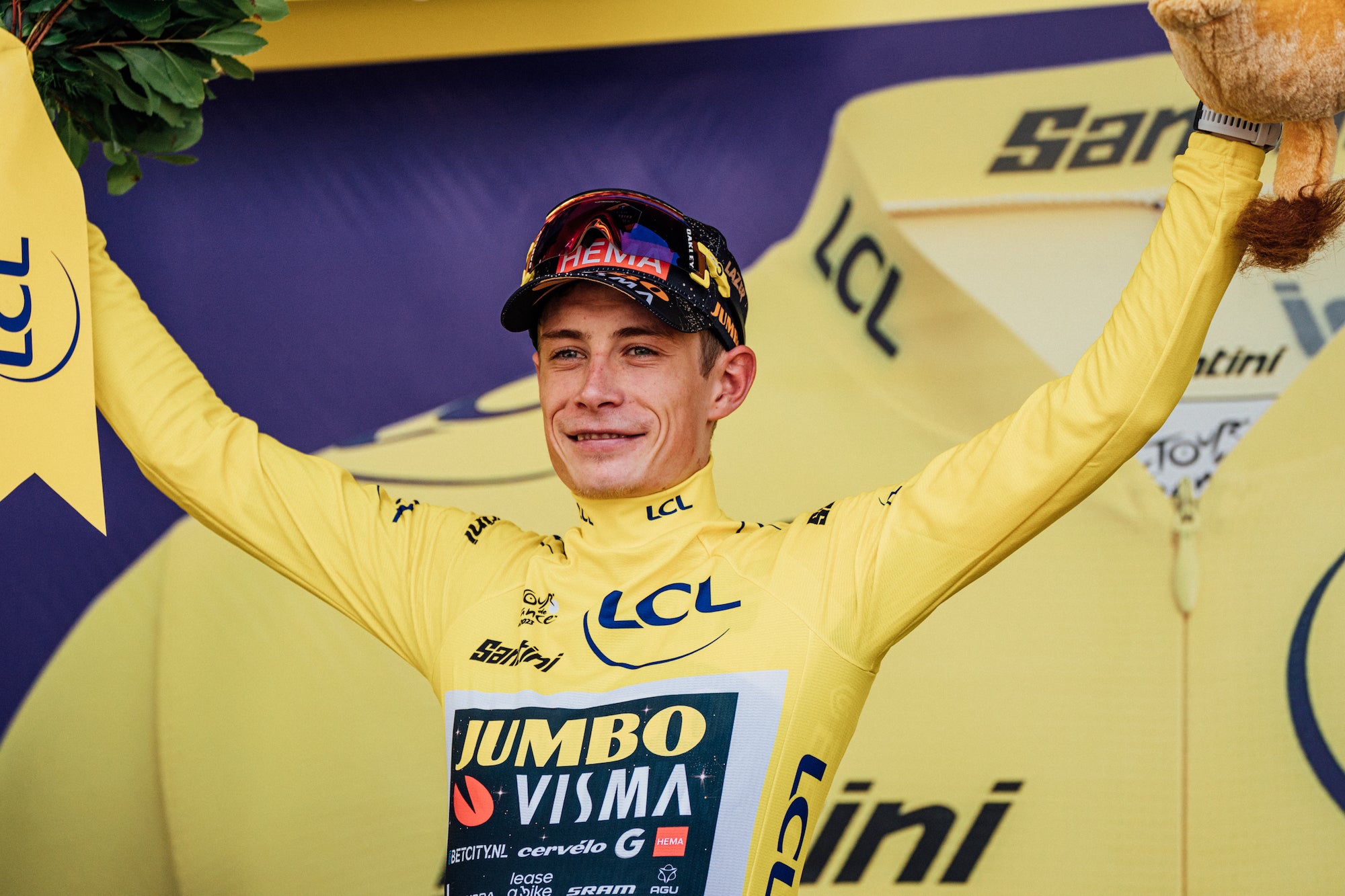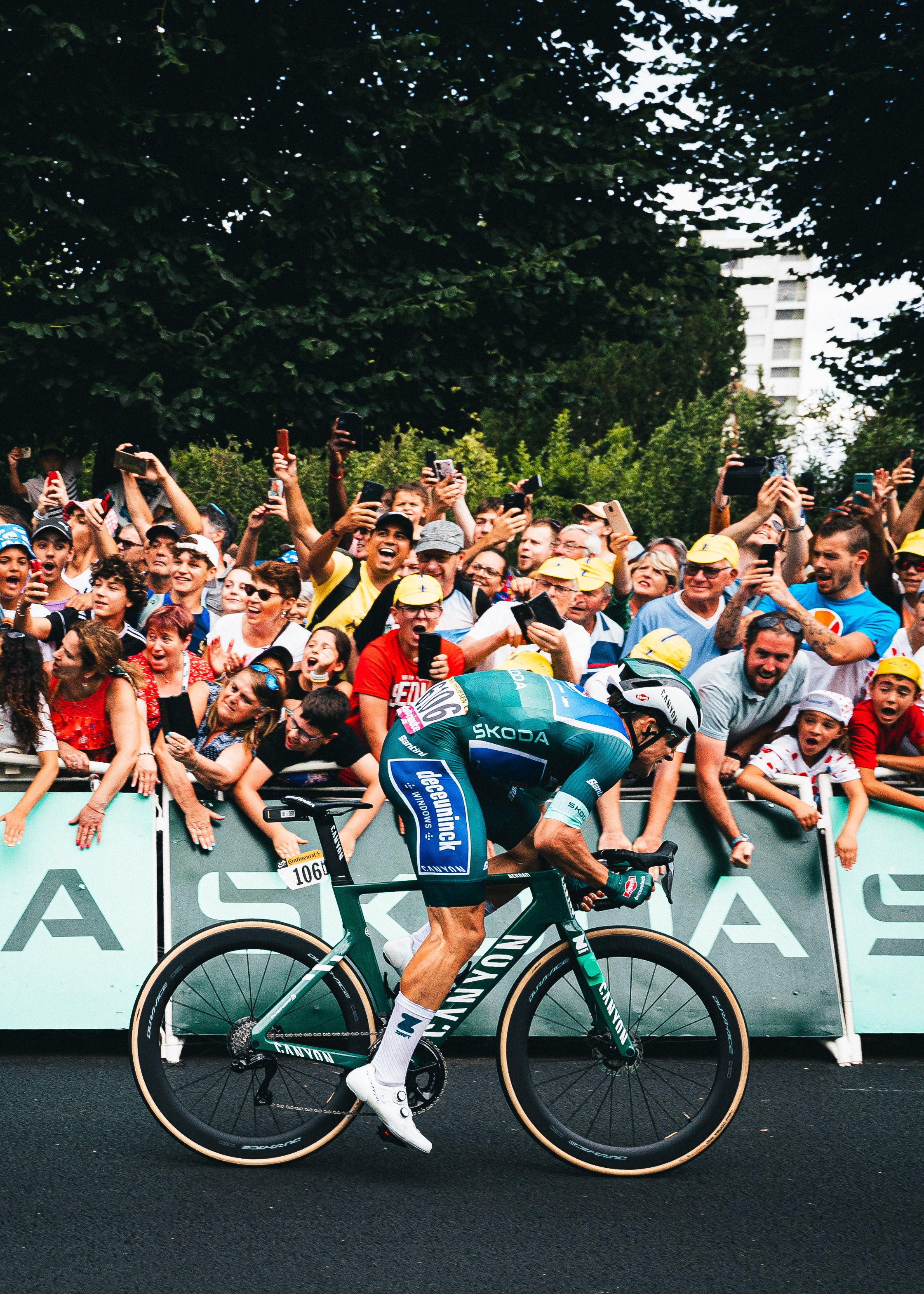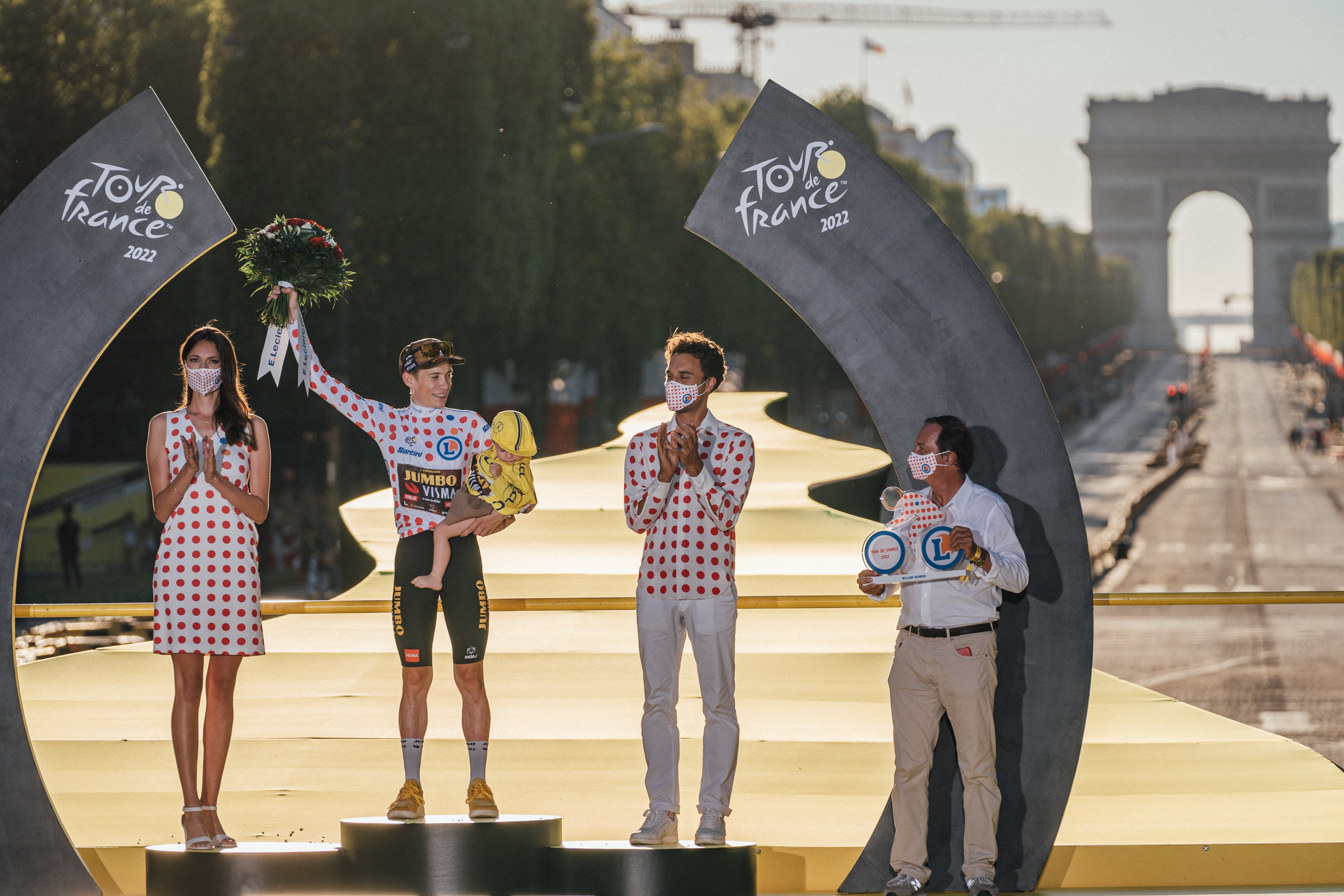The Tour de France is undoubtedly the most iconic race on the cycling calendar, with the yellow jersey being the most elusive prize. However, it isn’t just stages and a range of colourful jerseys that the riders can win over the three weeks, there’s plenty of prize money on offer too.
Race organiser ASO has provided a total prize pot for this year’s Tour of approximately €2,300,000 – equivalent to around £1,984,000. This fund will be shared between the top riders in each classification, from the overall race winner down to the most combative rider at the Tour – as well as the top finishers on each stage, and the first few over the line at intermediate sprints and categorised climbs.
The winner of each stage of the Tour, alongside writing their name into the history books, secures a sum of €11,000 for crossing the line first. That figure is halved for second-place, €5,500, with the third-place finisher picking up €2,800. Every rider in the top-20 on the day will rake in some prize money for their troubles even if it is just €300 for the 20th placed rider on the stage.
 (Image by Zac Williams/SWPix.com)
(Image by Zac Williams/SWPix.com)
While the maillot jaune itself may be the only prize that the likes of Tadej Pogačar or Jonas Vingegaard have their eyes set on, it is accompanied by a handsome cheque of €500,000 should they have the jersey on their back by the time they reach the end of the race. For every stage a rider is in the yellow jersey they will add €500 to their winnings too.
The runner-up in the general classification will take home €200,000, with the final man on the podium earning half of that, €100,000. Outside of the podium places, riders down to 19th in the general classification will earn anywhere between €70,000 and €1,100. After that, every rider that crosses the finish line in Paris sitting above 160th position will collect €1,000 for their efforts.
The fight for the green jersey is not only hotly contested at the Tour but also lucrative too.
Alongside the stage finishes where the winner rakes in €11,000, the intermediate sprints on each road stage provide a financial incentive for the fast men. Victory at an intermediate sprint secures €1,500 for the rider, with second and third picking up €1,000 and €500 respectively. Should a sprinter pick up enough points to pull on the maillot vert, they’ll pocket €300 for every stage that they keep the jersey. The overall winner of classification, who will no doubt be looking to win cycling’s most iconic sprint finish on the Champs-Élysées too, will secure €25,000.
 (Image by Alex Whitehead/SWPix.com)
(Image by Alex Whitehead/SWPix.com)
For the riders that fare better when the race is going uphill, the King of the Mountains classification also provides some financial incentives too.
Wearing the polka-dot jersey for a stage is worth €300, with each categorised climb along the Tour’s route worth anywhere between €5,000 and €200 for the riders over the summit first. Okay, admittedly only one climb provides a prize of €5,000, but it is a very special one. The Souvenir Henri Desgrange, named in honour of the Tour’s creator and first race director, is an award given to the rider that is first to summit the race’s highest peak each year.
For the 2024 edition, the prize will be given to the first rider over the top of the 2,802m-high Bonette Pass on stage 19. For the rest of the climbs, the prize money varies in the hundreds of euros. The first three riders over a hors categorie climb, of which there are six in this year’s race, will scoop up €800, €450, and €300 respectively.
A first category climb is slightly lower in terms of prize money, with the first rider picking up €650, followed by €400 and €150 for the second and third riders over the top. Second category climbs see the first rider over the top collecting €500, with €250 for the runner-up. When it comes to third and fourth category climbs, there is only a financial reward for the first rider over the top of them – given their frequency and less testing gradients. A rider will pick up €300 for a third category peak, and just €200 for a fourth category climb.
 (Image by Zac Williams/SWPix.com)
(Image by Zac Williams/SWPix.com)
The young rider classification may be the smallest competition when it comes to prize money, but it can still be rewarding for an up-and-coming rider. Just like other sub-classifications, a day in the jersey means a €300 cheque, however, the highest ranked young rider on each stage will also collect €500 too. The four best young riders at the end of the three-week tour will earn prize money for their efforts. The winner will rake in €20,000, before the prize money then decreases by €5,000 for each position within the top four.
The team classification is determined by the cumulative time of each team’s three fastest finishers on each stage. The team with the best combined time will receive €2,800 to share amongst their riders and staff. At the end of the tour, the top five teams in the sub-classification will earn between €50,000 for the winning squad and €8,000 for the fifth-placed team.
The final prize on offer at Le Tour is awarded by race judges to the most aggressive rider on each road stage – often this is the rider that was the last man standing in the day’s break. As the most combative rider, they earn themselves €2,000 for their efforts and are given a red race number, or dossard, for the next stage. When the race concludes in Paris, a Super Combatif award is given out to the rider deemed to have been the most aggressive over the entire race – they also collect a cheque for €20,000.






























